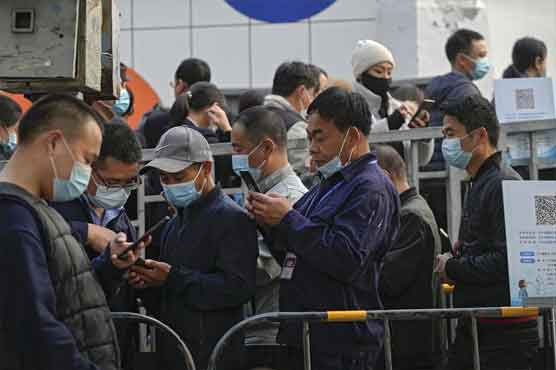As many try living with virus, China keeps up zero tolerance

As many try living with virus, China keeps up zero tolerance
TAIPEI (AP) — Wang Lijie planned to spend three days in the Gobi Desert last month to take in the area’s famous poplar forest as its trees turned a golden yellow.
Instead, the Beijing resident has been stuck for more than three weeks, much of it in quarantine, after authorities discovered a cluster of COVID-19 cases in a nearby city. He was among more than 9,000 tourists who became trapped in Ejin Banner, a remote part of China’s Inner Mongolia region that is in the Gobi.
As vaccination rates rise in many parts of the world and even countries that previously had strict COVID-containment strategies gingerly ease restrictions, China is doubling down on its zero-tolerance policy.
China pioneered that approach — of strict lockdowns, multiple rounds of mass testing and centralized quarantine — during the world’s first major outbreak of the coronavirus in Wuhan. And it continues now, even as it says it has fully vaccinated 77% of its 1.4 billion people and started giving booster shots.
“The cost is truly rather high, but compared with not managing it, relaxing (the zero-tolerance policy), then that cost is even higher,” Zhong Nanshan, a top government doctor, said in a recent TV interview.
The impact of the restrictions is not widespread — but unpredictable. Unlucky travelers can find themselves in the wrong place at the wrong time, like the tourists in the Gobi Desert, some of whom were bused 18 hours to finish their quarantine in another city. People from Beijing have complained online about leaving for a work trip and not being able to return home.
In a sign of the effect the regulations can have even on thriving businesses, the wildly popular hotpot restaurant chain, Haidilao, decided to shutter 300 outlets in part because of the pandemic and is scaling back a plan to add 1,200 new ones. The strain has been particularly felt in places like Ruili, a city in the southwest that has been locked down repeatedly this year.

